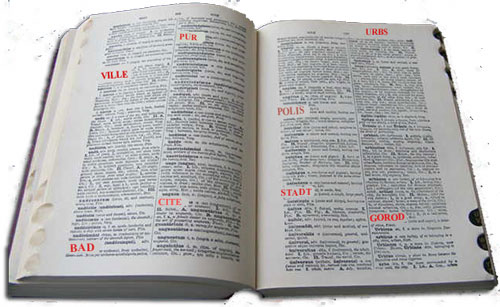
©2004 UrbisMedia
The ways in which cities come by their names are probably as complex as the way in which people are named. As we are often named after a relative, an historical or religious figure, or the season or day on which we were born, perhaps even the city in which we were born, urban appellation is as varied and circumstantial.
Perhaps the most common basis for a city’s name derives from geographical location or geographical feature. Tel Aviv, for example, was doubtless built on the mound of earlier cities, and translates as “the hill of Spring.” Nagasaki, a city at the end of a narrow peninsula, simply means “long cape” (Khartoum, which is also on a spit of land, in the Nile, means, less delicately, “the snout”). The site of Paris was called Lutetia (“marshy, or low-lying place”) by the Romans, but he name that stuck derives—not from the infamous son of Troy—but from the small local tribe called Parisii. Other city names are based on resources found at their sites: Limassol, Cyprus, (Greek for “copper”); or what type of work was prevalent—Malaga (Phoenician for “fish-drying place”).
Whatever the method city names in literal translation sometimes mean things quite different than what we have come to associate with such places (Chicago is reputed to be derived from a local Indian word for “onion”). Below is a score of translated city names and their names in translation.
The quiz is no longer available at this time.
___________________________________
©2004, ©2015, James A. Clapp (UrbisMedia Ltd. Pub. 4.25.2004)
